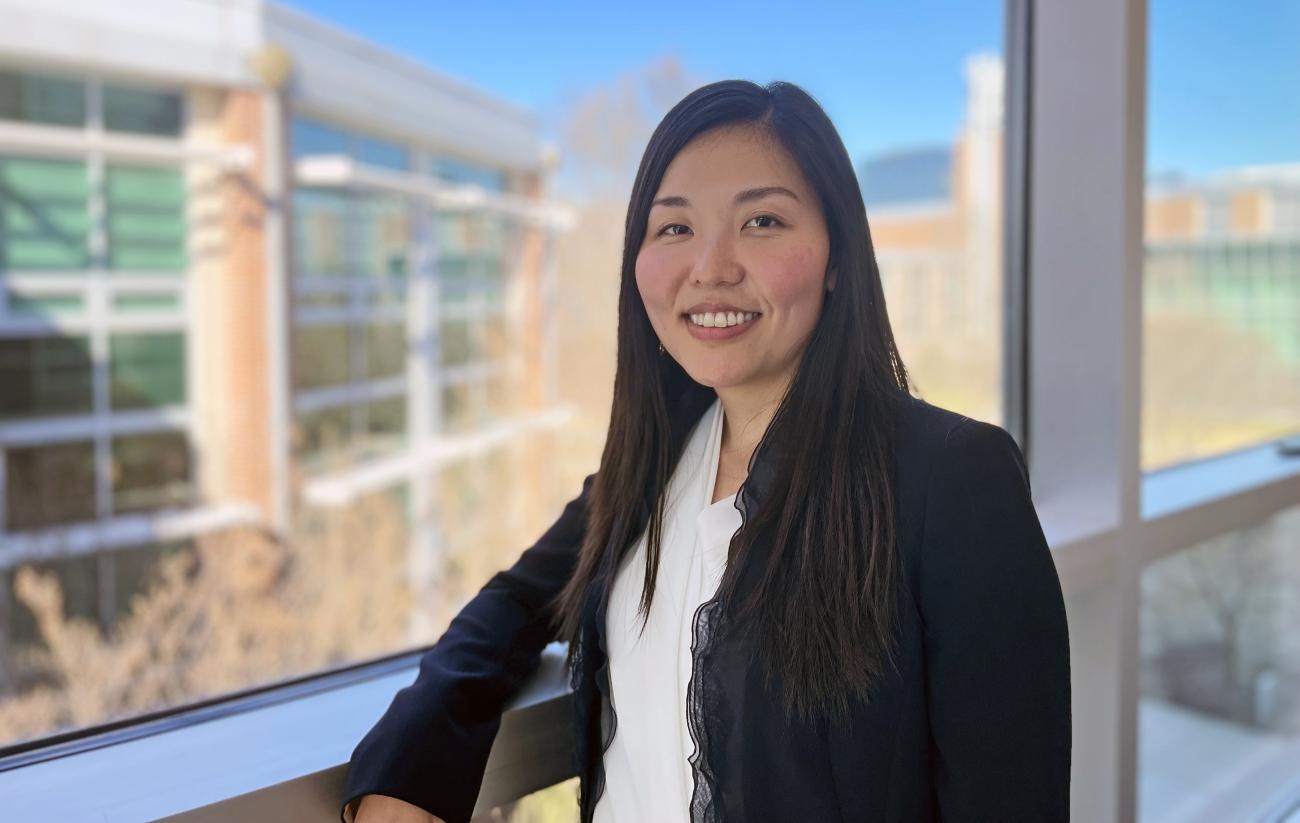Neuroscientist and former BME grad student Nuri Jeong is helping to reshape lives and careers
As Nuri Jeong lay on the pavement of Northside Drive, pinned down by the weight of a Chevy Suburban, a thought shouted from her subconscious, “I’ve got to save my brain!”
It was April 2022, one year before her PhD defense. She’d been crossing the street near her apartment when the young driver turned right while looking left.
“He never saw me,” says Jeong, at the time a member of Annabelle Singer’s lab in the Wallace H. Coulter Department of Biomedical Engineering at Georgia Tech and Emory University. “The next thing I know, I’m on the ground looking up at the sky. I was fully conscious the whole time.”
Worried about brain damage, she lifted her arm up just to see if she could do it. Her arm was fine. So was her brain. But there was 6,000 pounds of SUV on her leg. She had tire marks on her body. The driver’s little brother leapt out from the passenger side to check on Jeong and she remembered that he was crying.
“I realized this was just as traumatic for them as it was for me,” says Jeong, who remained calm throughout the ordeal partly because the boy’s tears had triggered something deep within her. Jeong conjured empathetic superpowers she’d acquired in a compassion-based meditation program at Emory. That kept her tranquil through the pain.
The accident left her with broken bones in her shattered leg, requiring surgery and months of physical therapy. Today she can climb flights of stairs with no problem. Nonetheless, the accident left its mark, inspiring a career path that she never really expected.
Meet Dr. Nuri
Jeong, who earned her PhD in neuroscience from Emory within a year of the accident, seemed headed for a career in research — her dissertation uncovered a novel function of the brain’s inhibitory system in rapid learning.
Instead, she founded Goals Unhindered, a coaching and corporate training service company. Now, she’s helping professionals — project managers, data scientists, business leaders, entrepreneurs — reframe their lives and careers.
“As a scientist and an immigrant, I realized that individual research might not be enough for me, personally, to create meaningful change,” she says. “I wanted to help people and organizations understand that innovation isn't just about collecting data — it's about communicating that data in ways that create real impact.”
She added, “Goals Unhindered is about breaking down barriers, helping professionals see their work through different lenses, and empowering them to tell their stories more effectively. I saw too many brilliant people struggling to be understood, and I knew I could help bridge those communication gaps."
Finding the Path
Jeong moved to the U.S. in 2008, leaving her home and family in South Korea to pursue her American dream. She was immersed in the swirl of the immigrant experience, with its inherent bouts of unpredictability, which often left her feeling out of control, at least inwardly.
“As an immigrant, it's difficult to plan things out six months in advance when you're trying to figure out where you're going to be moving,” says Jeong, who earned dual Bachelor of Science degrees in Biotechnology from Thomas Jefferson University and Allied Health from Immaculata University, before moving to Atlanta.
The Covid pandemic and then the accident only increased her inner thoughts of instability, and she grappled with depression. It was her natural curiosity and impatience with feeling down that pulled her out of the funk.
“I wondered what I could do to make my situation better, and that’s when I started writing down my goals,” she says. The process made her realize there were areas of her life, unspoken aspirations, that she had never fully acknowledged while pursuing her career goals. And she came to realize there were different options for a scientist, other ways to make an impact.
Her former PhD advisor, for one, is not surprised by the direction Jeong’s career has taken.
“Nuri is entrepreneurial,” says Singer, who holds the McCamish Early Career Professorship in Coulter BME. “She’s always been the kind of person that will make her own path instead of following someone else’s.”
For Jeong, the accident on Northside Drive became the transformative moment that made her realize life was too short for traditional paths. Like all the hours she’d spent in Singer’s lab over the years, here was another teaching moment, albeit a very painful one.
“I learned that resilience isn't about staying on one track, but about being adaptable, understanding your own worth, and creating impact in ways beyond traditional research — my coaching business grew from that experience,” she says. “Really, I’m very thankful. I mean, like, how many people could say like they've been stuck underneath a 6,000-pound truck and survived?"
Latest BME News
Jo honored for his impact on science and mentorship
The department rises to the top in biomedical engineering programs for undergraduate education.
Commercialization program in Coulter BME announces project teams who will receive support to get their research to market.
Courses in the Wallace H. Coulter Department of Biomedical Engineering are being reformatted to incorporate AI and machine learning so students are prepared for a data-driven biotech sector.
Influenced by her mother's journey in engineering, Sriya Surapaneni hopes to inspire other young women in the field.
Coulter BME Professor Earns Tenure, Eyes Future of Innovation in Health and Medicine
The grant will fund the development of cutting-edge technology that could detect colorectal cancer through a simple breath test
The surgical support device landed Coulter BME its 4th consecutive win for the College of Engineering competition.








